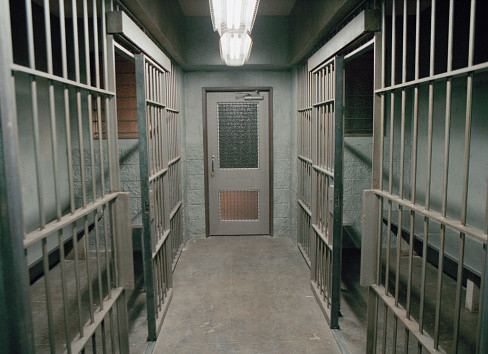
Observers noted on Tuesday that the current crackdown on gangs within Honduras' prisons bears a striking resemblance to a similar operation conducted in neighboring El Salvador by President Nayib Bukele last year.
In a manner reminiscent of El Salvador's authorities, the Honduran police, who initiated a prison sweep on Monday, have shared videos showcasing tattooed inmates being forcefully escorted.
However, unlike the polished production and media acumen of Bukele's videos, the Honduran releases have been lacking in terms of production values and media finesse.
"It's the same phenomenon," said retired police commissioner Henry Osorto, but added that the crackdowns should be scrutinized to see whether "standards and international treaties are being violated."
Rights groups in Honduras have raised concerns about alleged abuses occurring during the crackdown, including instances where prisoners were reportedly compelled to sit in spread-legged positions, partially naked and closely packed together in open prison yards.
Similarly, to El Salvador, officials in Honduras have responded to criticisms with indignation, dismissing them and arguing that street gangs inflict more harm on civilians.
"These criminals violate people's human rights, they kill, kidnap and extort money, who is defending those rights?" Honduran military police commander Ramiro Muñoz said in an interview with local media Tuesday.
The resemblance to Bukele's response to complaints from rights groups about El Salvador's prison crackdown in 2022 is striking. Bukele proudly mentioned that inmates were left with bare floors to sleep on and only two meals a day after he removed mattresses, reduced food supplies, and suspended prison visits and internet services.
"They didn't say anything when the criminals killed dozens of Salvadorans, but they jumped when we started detaining them," Bukele said of rights groups at the time.
In a similar vein, Honduras exhibited a degree of vindictiveness during its crackdown. Alongside the discovery of numerous weapons in prison raids, military police also confiscated inmates' guitars, musical instruments, and video games.
President Xiomara Castro has declared a state of emergency in certain provinces and deployed soldiers to patrol the streets. The government shared videos on Tuesday depicting police dismantling a cyclone fence that a gang had erected in a northern Honduran town to establish its territorial claim.
Similar to the situation in El Salvador, the intensive military-style searches conducted in Honduran prisons for two days revealed some unexpected findings.
For instance, a prominent leader of the notorious MS-13 gang in Honduras, known for his extensive tattoos, was discovered in a prison different from his designated facility, AP News reported.
This discovery, alongside the discovery of large quantities of weapons in inmates' cells, points to potential issues of mismanagement and corruption within the prison system.
"The prison system in Honduras is a corrupt school for criminals, and we are going to dismantle it and give people security," Defense Minister Jose Manuel Zelaya Rosales wrote in his social media accounts.
During the prison searches, following a distressing gang-related massacre of 46 female inmates last week at a women's prison in Tamara, Honduras, inmates were forced to remove their clothing, leaving them in shorts, and were made to sit hunched over in a prison courtyard.
The military police then proceeded to conduct thorough inspections of their cells, uncovering numerous pistols, a substantial quantity of assault rifle ammunition, and even grenades.
The prison sweep serves as a demonstration of the Honduran government's determination to combat gang activity.
The horrifying violence that occurred at the women's prison in Tamara deeply shocked the nation and triggered a series of raids, the implementation of curfews, and a heightened crackdown on criminal elements.
During the tragic massacre, female inmates associated with the Barrio 18 street gang managed to smuggle firearms, machetes, and flammable substances into the women's prison.
Overpowering the guards, they forcefully entered cellblocks where members of a rival gang were housed.
The assailants indiscriminately opened fire on their victims, brutally attacked them with machetes, and subsequently locked the cells before setting the victims on fire.
© 2025 Latin Times. All rights reserved. Do not reproduce without permission.




